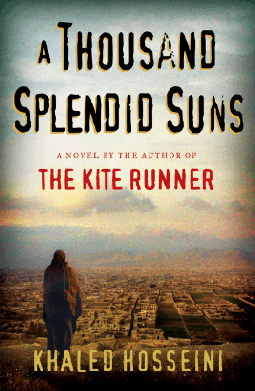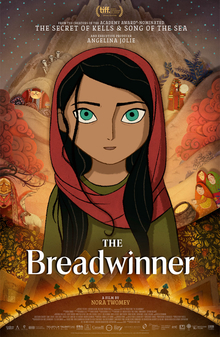Dayna Curry is an American citizen, who was held a prisoner by Taliban government of Afghanistan in 2001. She befriended fellow aid worker Heather Mercer while attending Antioch Community Church in Waco, Texas. In 2001 the pair were part of a German-based missionary group called Shelter Now International when they were imprisoned by the Taliban for proselytization. Their captivity coincided with the September 11 attacks and the beginning of the US-led War in Afghanistan. In November 2001, Curry and her fellow workers were rescued from Taliban captivity by US military forces.
Pamela Ann Smart is an American woman who was convicted of being an accomplice to first-degree murder, conspiracy to commit murder, and witness tampering in the death of her husband, Greggory Smart, in 1990. Smart, then aged 22, had conspired with her underaged boyfriend, then 15-year-old William "Billy" Flynn, and three of his friends to have Greggory (24) murdered in Derry, New Hampshire. She is currently serving a life sentence at Bedford Hills Correctional Facility for Women, a maximum security prison in Westchester County, New York.

Lesbian, gay, bisexual, and transgender (LGBT) people in the Islamic Emirate of Afghanistan face severe challenges not experienced by non-LGBT residents. Afghan members of the LGBT community are forced to keep their gender identity and sexual orientation secret, in fear of violence and the death penalty. The religious nature of the country has limited any opportunity for public discussion, with any mention of homosexuality and related terms deemed taboo.
Human rights in Afghanistan are severely restricted, especially since Taliban's takeover of Kabul in August 2021. Women's rights and freedom are severely restricted as they are banned from most public spaces and employment. Afghanistan is the only country in the world to ban education for women over the age of eleven. Taliban's policies towards women are usually termed as gender apartheid. Minority groups such as Hazaras face persecution and eviction from their lands. Authorities have used physical violence, raids, arbitrary arrests and detention, torture, enforced disappearances of activists and political opponents.

A Thousand Splendid Suns is a 2007 novel by Afghan-American author Khaled Hosseini, following the huge success of his bestselling 2003 debut The Kite Runner. Mariam, an illegitimate teenager from Herat, is forced to marry a shoemaker from Kabul after a family tragedy. Laila, born a generation later, lives a relatively privileged life, but her life intersects with Mariam's when a similar tragedy forces her to accept a marriage proposal from Mariam's husband.
Maheen Zia is a Pakistani film director and film editor.

Khuda Gawah is a 1992 Indian epic drama film written and directed by Mukul S. Anand. It stars Amitabh Bachchan, Sridevi ,Nagarjuna, Shilpa Shirodkar, Danny Denzongpa, Kiran Kumar in pivotal roles. The music was composed by Laxmikant–Pyarelal. The film marked Sridevi and Bachchan's third collaboration after Inquilaab (1984) and Aakhree Raasta (1986). In the film, Badshah Khan travels from Afghanistan to India to find the killer of Benazir's father so that he can impress her. He succeeds but soon finds himself framed for a murder and trapped in an Indian prison. Made on a budget of ₹57 million, it was one of the most expensive films of its time, just below Ajooba (1991) which also starred Bachchan.
Tanaz Eshaghian is an Iranian-born American documentary filmmaker. She resides in New York City.
Prostitution is illegal in Afghanistan, with punishments ranging from 5 to 15 years of imprisonment. The country is deeply religious and one of the most conservative countries in the world, where sex outside marriage is not only against the law but could lead to serious consequences, even capital punishment.
Gulnaz is an Afghan woman and rape victim. She was raped by her cousin's husband in 2009 and became pregnant. She was then charged with zina, a crime in Afghanistan. She was initially sentenced to two years in jail, which was later raised to twelve, and she gave birth to a daughter in jail.
No Burqas Behind Bars is a 2012 Swedish feature-length documentary film made by Maryam Ebrahimi and Nima Sarvestani on life in a women's prison in Afghanistan.
Sahar Gul is an Afghan former teenager who was subjected to torture and abuse by her husband's family in the town of Puli Khumri when she was illegally married as a child bride. Her case became notable in Afghanistan and internationally when she was rescued in late 2011. The Guardian said that the case of Gul "horrified Afghanistan and prompted a bout of national soul-searching". Three of her in-laws were found guilty of attempted murder and sentenced to 10 years in prison, but later freed after an appeals court voided their convictions. American Attorney Kimberley Motley represented Gul in Supreme Court upon hearing of the in-laws release. Gul became the first victim of a crime that was represented by an Attorney for a criminal proceeding. In a landmark decision the Supreme Court, and after the case was decided twice by the Appellate Court, Gul's in-laws, brother and husband who were never originally tried were convicted and sentenced to five years in prison. The court also agreed that Gul could sue all parties for civil compensation. Gul is recovering in a women's shelter and says that she has ambitions to become a politician and stop other women suffering as she did.

Not My Life is a 2011 American independent documentary film about human trafficking and contemporary slavery. The film was written, produced, and directed by Robert Bilheimer, who had been asked to make the film by Antonio Maria Costa, executive director of the United Nations Office on Drugs and Crime. Bilheimer planned Not My Life as the second installment in a trilogy, the first being A Closer Walk and the third being the unproduced Take Me Home. The title Not My Life came from a June 2009 interview with Molly Melching, founder of Tostan, who said that many people deny the reality of contemporary slavery because it is an uncomfortable truth, saying, "No, this is not my life."

Prisoners of Hope: The Story of Our Captivity and Freedom in Afghanistan is the 2003 memoir of Christian aid workers Dayna Curry and Heather Mercer. The book details their early lives, their humanitarian work in Afghanistan, and their three months of imprisonment by the Taliban in 2001.
Rape is a major issue in Afghanistan. A number of human rights organizations have criticized the country's rape laws and their enforcement.
Farkhunda Malikzada, commonly referred to as Farkhunda, was a 27-year-old woman who was publicly lynched by a mob in Kabul, the capital of Afghanistan, on 19 March 2015. A large crowd formed in the streets around her claiming that she had burned the Quran, and for that, her accusers announced that she must be sent to Hell right away.

The Breadwinner is a 2017 animated drama film from Irish animation studio Cartoon Saloon directed by Nora Twomey. Based on the best-selling novel by Deborah Ellis, the film was an international co-production among Canada, the Republic of Ireland and Luxembourg, and received a limited release on 17 November 2017.
Kimberley Chongyon Motley is an American international human rights and civil rights lawyer. She is an attorney, author, entrepreneur, and former Mrs. Wisconsin-America 2004. Motley is the first foreign attorney who litigated cases in Afghanistan. To practice in Afghanistan Motley studied Sharia, "and established herself as the only foreign litigator in one of the world's most conservative and male-dominated cultures."

Sahraa Karimi is an Afghan film director who was the first female chairperson of the Afghan Film Organization. She has directed 30 short films, 3 documentary films and one fiction film Hava, Maryam, Ayesha which had the world premier at the 76th Venice Film Festival. Prior to the fall of Kabul to the hands of the Taliban, she was the first and the only woman to be directing Afghanistan's film entity.

Zarifa Ghafari is a former female mayor of Maidan Shahr, capital city of the Wardak Province, Afghanistan. Ghafari was one of the few Afghan female mayors, next to the first Afghanistan's mayor, Azra Jafari and Khadija Zahra Ahmadi, and was also the youngest to be appointed, at the age of 24. She is known for her efforts to advance women's rights in Afghanistan. Ghafari was chosen as an International Woman of Courage in 2020 by the US Secretary of State. She has survived three assassination attempts.








